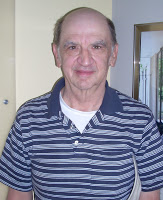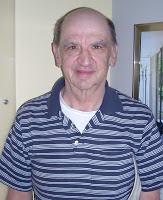My take on “The Iceman Cometh,” a drama by Eugene O’Neill
The year is 1912 about 10 years after the Boer War. The dramatis personae are all extreme alcoholics and are clinically depressed. They also wax philosophical. The scenes all take place in a bar with a boarding house upstairs, owned by Harry Hope who is also a severe alcoholic and is a doomsday philosopher. His bar and hotel are located in western Greenwich Village (where else?)
In a way, the drinkers are actually rather close to each other – most of them have known each other for years — although they also quarrel frequently and fiercely. In their lengthy exchanges with one another, they try and convince themselves that they are not clinically depressed, that, if only they could work up enough courage, they could/would walk out through the doors of the bar and start a steady job or even develop a career.
Of course, these steady jobs and careers are actually pipe-dreams. Pete Wetjohn is the Dutchman, a veteran of the Boer War (1899-1902). Joe is the one “angry” black man.
As noted above, Harry Hope is the proprietor of the Harry Hope Bar and Hotel and is second in importance as a play character to Theodore Hickman (Hickey).
Some play characters include James Cameron as Jimmy Tomorrow, and there are three prostitutes, Pearl, Margie and Cora. Harry Hope and Hugo are their pimps. All the characters are heavy drinkers (“drunks” or “drunkards”) and party almost constantly in the barroom. Rocky is the Italian night bartender.
All the barroom imbibers, including Harry Hope, proprietor, live for their pipe-dreams. After each pipe-dream tirade, each drinker returns to hitting the bottle, hoping to have a brain-numbing blackout.
The main character, the protagonist, the “hero” of the play is Theodore Hickman (Hickey) who eventually admits he shot his wife Evelyn to death. The reader assumes this was because he had discovered that she was having an affair with the iceman (whence the play’s title).
In a rather verbose but famous soliloquy, pp. 689-702, Hickey tries to make an extremely unconvincing case that he shot his wife to death because he loved her and because he was temporarily insane. Also unconvincing was his argument that he wanted to free Evelyn of her love for him, in which, no matter what he did, including frequenting prostitutes when he was on his hardware salesman journeys, she would always forgive him.
Unforgettable quote (that I still remember from 50 years ago): Harry Hope (note ironic last name), during Hickey’s verbose soliloquy, tells Hickey: “Get it over, you long-winded bastard. You married her [Evelyn], and you caught her cheating with the iceman and you croaked her, and who the hell cares?”
P. 700, Hickey finally admits: “I killed her.” Hickman had forewarned the police, so that, when the moment came, NYC Police Officer Moran was ready and arrested Hickey right after his soliloquy.
Hickey was so guilt-ridden, he expected and welcomed the prospect of suffering capital punishment in the electric chair.
Also in his soliloquy, Hickey preached to his own real inebriated friends that, once you give up your pipe dreams, you will find inner peace and happiness. Of course, Hickey, as preacher, has a credibility problem. The “drunks” interpreted that as meaning suicide was the only answer, and Don Parritt took him up on his correctly or incorrectly interpreted recommendation.
I must say I got the impression that Evelyn and Hickey did not actually live in New York City and P. O. Moran was a NYC police officer so that there might have been an unresolved issue of jurisdiction. This was not resolved in the play.
Another sub-plot revolves around Don Parritt, another of Harry Hope’s roomers in his hotel. Don Parritt had accepted a hefty payment from the Federal government for turning in his own mother who was permanently incarcerated in Federal prison for advocating, as an anarchist, the overthrow of the U. S. government.
Don Parritt also went on and on about how guilty he felt about betraying his own mother for a few silver coins so that, on p. 710, he throws himself out of the window of his rented room.
My reaction to this play was the playwright was matching his play’s themes to the public mood. He wrote the play in 1939 when the public was getting psychologically prepared for World War II, and in 1946 when the play was actually presented to the public, matched their doomsday mood, despite their victory over the Nazi’s. The play was a smashing success.
1 December 2016
About the Author
I was born in 1944, I lived most of my life in New York City, Queens County. I still commute there. I worked for many years as a Caseworker for New York City Human Resources Administration, dealing with mentally impaired clients, then as a social work Supervisor dealing with homeless PWA’s. I have an apartment in Wheat Ridge, CO. I retired in 2002. I have a few interesting stories to tell. My boyfriend Kevin lives in New York City. I graduated Queens College, CUNY, in 1967.









